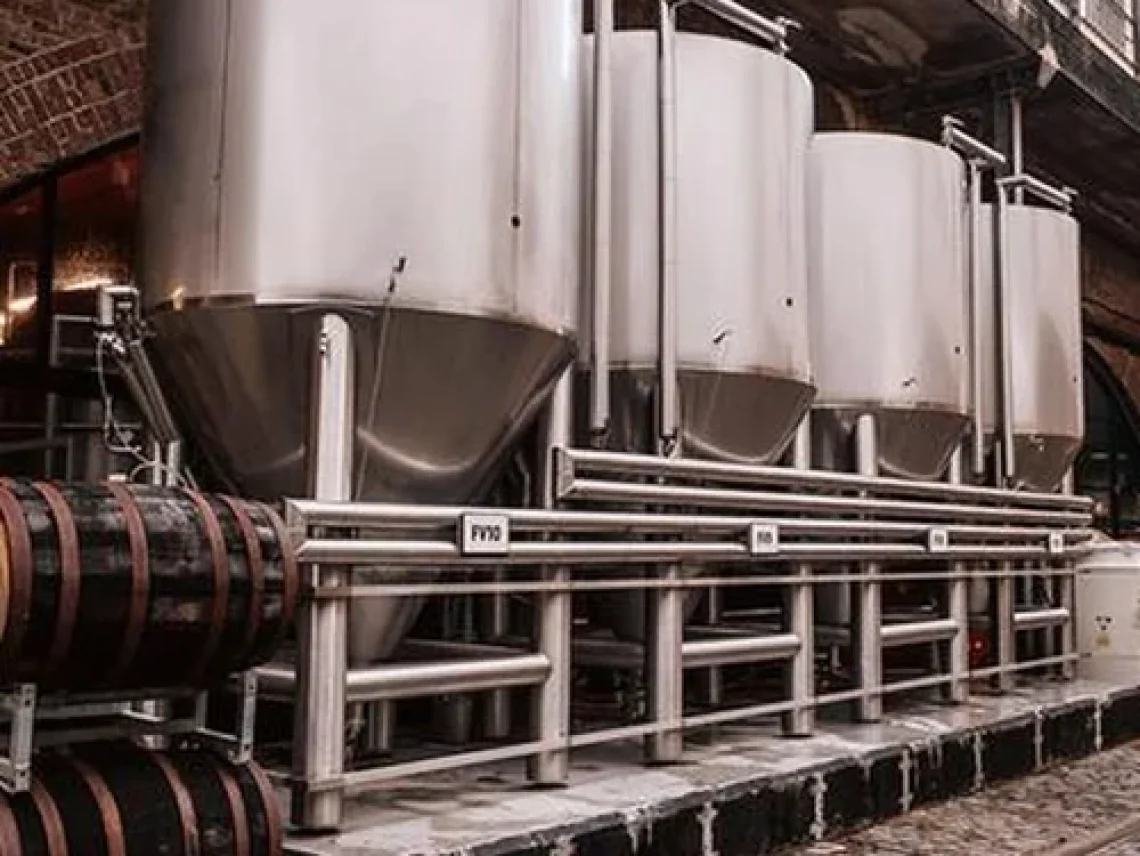Processing Vessel

Table of Contents
ToggleIntroduction to Processing Vessels
Definition of a Processing Vessel
A processing vessel is specifically designed to maintain, blend, warm, cool, or chemically alter materials efficiently for industrial applications. These vessels come in various sizes and styles, tailored to meet the unique needs of different industries. For instance, they are essential in brewing beer, producing pharmaceuticals, and creating everyday products. By serving as vital components in manufacturing, processing vessels remain indispensable to modern industrial operations.
Importance in Industrial Applications
Processing vessels play a crucial role in industrial processes. They ensure the safe and efficient management of materials, resulting in higher-quality products and smoother operations. For example, these vessels help maintain the right temperature, mix components uniformly, and facilitate proper chemical reactions. Undoubtedly, they are at the core of achieving industrial efficiency and reliability.
Types of Processing Vessels
Mixing Vessels
Mixing vessels combine various substances to create a uniform mixture. They are especially important in industries such as food and beverages, pharmaceuticals, and cosmetics, where product consistency is critical. Additionally, these vessels are equipped with agitators or mixers to ensure thorough blending.
Storage Vessels
Storage vessels securely contain raw materials or finished products. They can handle a range of materials, from liquids to gases, while keeping the contents uncontaminated and stable over time. Industries such as oil and gas, chemicals, and agriculture depend on these vessels for reliable storage solutions.
Reactor Vessels
Reactor vessels are where the magic happens. These vessels facilitate chemical reactions with the aid of offering the critical environment for reactants to engage. They’re used appreciably within the chemical, pharmaceutical, and petrochemical industries to supply the whole lot from fuels to medicinal tablets.
Fermentation Vessels
Fermentation vessels are specialized containers used regularly in the food and beverage organization, in particular in brewing and winemaking. They offer the appropriate surroundings for microorganisms to ferment sugars into alcohol, developing scrumptious beers, wines, and spirits.
Need a reliable partner?
FAQs About Processing Vessels
What substances are generally used inside the creation of processing vessels?
Processing vessels are usually created from materials that provide durability, corrosion resistance, and the potential to withstand high pressures and temperatures. Common substances include stainless steel, which’s valued for its corrosion resistance and strength; carbon metallic, which gives first-rate sturdiness at a decreased price; and specialized alloys, which include Hastelloy or Inconel, which might be used in incredibly corrosive or high-temperature environments.
How do you decide the dimensions and capacity of a processing vessel wanted for an application?
The length and ability of a processing vessel are determined through several elements, such as the quantity of cloth to be processed, the nature of the substances (liquid, gasoline, solid), the system necessities (including mixing, heating, or cooling), and the favored throughput. Engineers conduct a detailed analysis of the system parameters, including response instances, temperature management needs, and pressure necessities.
What protection features are typically included in processing vessels?
Safety is critical attention inside the layout and operation of processing vessels. Common safety features include pressure remedy valves, which prevent over-pressurization; rupture discs, which give a fail-safe towards strain spikes; and automated manipulation systems that reveal and adjust system conditions in real time. Additionally, vessels are regularly prepared with temperature sensors, stage indicators, and emergency close-off mechanisms. These capabilities paintings together to ensure secure operation, shield employees, and prevent damage to the vessel and surrounding infrastructure.
How are processing vessels maintained to ensure toughness and overall performance?
Regular upkeep of processing vessels is vital to ensure their longevity and most efficient overall performance. Maintenance practices encompass habitual inspections for signs and symptoms of wear and tear, corrosion, or damage; cleaning to eliminate residue build-up that would affect procedure performance; and trying out protection features like stress remedy valves. It’s also crucial to observe a scheduled renovation plan that includes each preventive and predictive renovation activity.
Can processing vessels be custom-designed to meet particular business requirements?
Yes, processing vessels may be highly customized to satisfy the unique desires of different industrial methods. Customization options encompass choosing the precise materials for production, designing unique styles and sizes, integrating superior blending or heating factors, and adding features together with insulation, outside jackets for temperature manipulation, and specialized coatings for enhanced corrosion resistance. Engineers paintings intently with customers to understand their unique process requirements and increase a vessel layout that ensures the most efficient overall performance and efficiency.
Solutions
In the realm of industrial solutions, Red River emerges as a pioneer, offering a diverse range of custom-engineered products and facilities. Among our specialties is the design and production of Custom/OEM Pressure Vessels, meticulously crafted to meet individual client requirements, ensuring performance under various pressure conditions. Our expertise extends to the domain of prefabrication, where Red River leads with distinction.
The company excels in creating prefabricated facilities, modules, and packages, reinforcing its stance as a forerunner in innovation and quality. This proficiency is further mirrored in their Modular Skids offering, where they provide an array of Modular Fabricated Skid Packages and Packaged equipment. Each piece is tailored to client specifications, underlining their commitment to delivering precision and excellence in every project they undertake.
